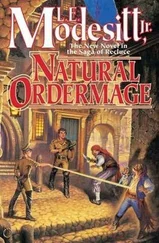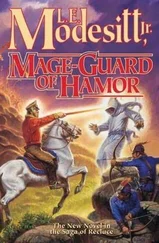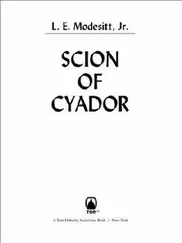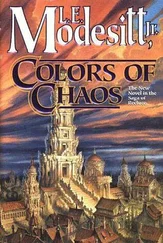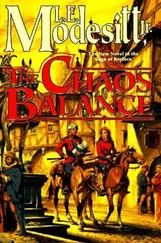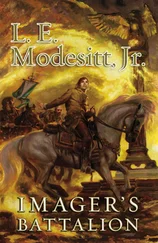L. Modesitt - Imager
Здесь есть возможность читать онлайн «L. Modesitt - Imager» весь текст электронной книги совершенно бесплатно (целиком полную версию без сокращений). В некоторых случаях можно слушать аудио, скачать через торрент в формате fb2 и присутствует краткое содержание. Жанр: Фэнтези, на английском языке. Описание произведения, (предисловие) а так же отзывы посетителей доступны на портале библиотеки ЛибКат.
- Название:Imager
- Автор:
- Жанр:
- Год:неизвестен
- ISBN:нет данных
- Рейтинг книги:4 / 5. Голосов: 1
-
Избранное:Добавить в избранное
- Отзывы:
-
Ваша оценка:
- 80
- 1
- 2
- 3
- 4
- 5
Imager: краткое содержание, описание и аннотация
Предлагаем к чтению аннотацию, описание, краткое содержание или предисловие (зависит от того, что написал сам автор книги «Imager»). Если вы не нашли необходимую информацию о книге — напишите в комментариях, мы постараемся отыскать её.
Imager — читать онлайн бесплатно полную книгу (весь текст) целиком
Ниже представлен текст книги, разбитый по страницам. Система сохранения места последней прочитанной страницы, позволяет с удобством читать онлайн бесплатно книгу «Imager», без необходимости каждый раз заново искать на чём Вы остановились. Поставьте закладку, и сможете в любой момент перейти на страницу, на которой закончили чтение.
Интервал:
Закладка:
“I can’t say, sir. I don’t know their truths.”
“That’s the logical answer, Rhennthyl. It’s also an answer you will need to keep to yourself. Why?”
“Because everyone around me believes our truths are right?”
He nodded. “People do not like their beliefs challenged. They want certainty, and they want everyone to follow their way, because they are convinced that their way is the only right way. Oh, there are a few open-minded people about, but far fewer than claim they are.”
I could see that as well, perhaps because I could recall all too well my father’s belief in the superiority of a life spent as a factor.
“Let me ask you another question. We are always cautioned not to attach too much weight or significance to a name. But isn’t calling the one who cannot be named ‘the Nameless’ just a convenient way of saying we’re following the rule of not emphasizing names while doing just that?”
“Sir?”
“Isn’t ‘the Nameless’ as much a name as ‘Dichartyn’ or ‘Rhennthyl’?”
Once again, I had to think about that. He was certainly right and yet . . .
“Rhenn?”
“Sir . . . how can we talk about anything without names? We name metals, the colors of the rainbow, the objects in everyday life.”
“Why are those different from the one who cannot be named? Or from you . . . or me?”
I finally grasped at an answer. “They’re not alive.”
“What about animals? We often name them. They’re alive. What does being alive have to do with names?”
I could feel that there was a difference, but I couldn’t find any words to express what I felt, and I finally shrugged, helplessly.
“Metals, objects, minerals . . . they cannot change what they are. All fundamental substances can only exist in three forms, like water, which we can see as steam, a vapor or gas, or as a liquid, or as a solid, as ice. The nature of most objects is limited, whereas we exist as solids, except we breathe air, which is a combination of gases, and blood and other liquids run through us. We are less fixed than the hard physical world in which we live, and yet naming suggests a fixity which is not true . . .”
But was it untrue? I doubted some people could ever change.
“. . . Names are a necessary convenience, but they represent only a small proportion of what anyone is, and the more alive, the more powerful, the more talented anyone may be, regardless of whether they are good or evil, the less their name tells of them.”
I understood everything Master Dichartyn had said, but the more questions he asked, the more I wondered why he continued to press me on so many matters.
“Tomorrow, we’ll go over the next section in the science book and sections nine and ten in the History and Politics of Solidar .”
I nodded politely.
“We’re almost done here, but there’s one last thing.” Master Dichartyn stood.
“Yes, sir?” I also rose, wondering what else he could say.
“You can tell the other seconds that there was a strange fire at the Collegium at Westisle. That’s the Collegium outside the harbor of Liantiago. That was what we were meeting about. We’ve decided on a course of action, but that is all you are to know or should know at this point.” He smiled. “Good day, Rhenn, and pace yourself at the workshop.”
“Good day, sir. Yes, sir.”
I had thought about sitting outside and reading some of the history and politics, but it was misty and cold, not that it was actually raining, and so I took everything back to my room and started in on section nine-the one dealing with the administrative districts of Solidar.
That reading was dull, so dull that I was one of the first at the dining hall for lunch, but Johanyr, Shannyr, and Diazt were right behind me, and we sat together at the long second table.
“Did Master Dichartyn say anything to you?” asked Johanyr.
“He said that I could tell you the masters were meeting over a strange fire at the Collegium at Westisle, and that they’ve decided what to do, and that was all I needed to know.”
“He said that ?” asked Diazt.
“Close to word for word.”
“What did you ask him?” inquired Johanyr.
I shook my head. “I never had a chance to say anything. He wasn’t happy with my work in the workrooms, and he wasn’t happy with my logical proofs, and he didn’t like the way I handled some of the imaging exercises. I wasn’t about to ask him anything.”
Diazt and Johanyr exchanged glances.
“Not good,” said Diazt.
“That he knew what we were talking about?” I asked.
There was a pause, enough to show that my concern wasn’t all of what bothered them.
“They must have listening tubes in the common room, or someone told him,” Diazt said.
“Or both,” added Shannyr.
“He was delivering a message,” I suggested blandly, trying to get more of a reaction. “But why would he care what we talk about? We can’t have been the only ones who noticed that the masters were worried and meeting.”
“It’s not that,” said Johanyr in a lower voice.
“What, then? Warning us to keep our speculations to ourselves.”
The other three all nodded.
I didn’t think that was all, but I only said, “There aren’t enough of them to listen all the time.”
Johanyr shook his head sadly, as if to suggest I didn’t know what I was talking about.
I shrugged helplessly.
Diazt did grin, but only briefly.
27
Preparation is always an act of faith.
On Meredi and Jeudi, in addition to my studies and half-improving my ability to image the aluminum bars without exhausting myself, I worked on trying to develop stronger but invisible shields against imaging. I didn’t meet with Master Dichartyn at all, but Gherard gave me reading assignments. All he said was that Master Dichartyn was away. The common room was deserted both nights, and I didn’t see Johanyr and the others anywhere. Even though everyone was pleasant and cheerful at meals, that worried me, because it suggested that they thought I’d been the one to report what they’d said. At the very least, it didn’t show much trust.
On Vendrei, I waited half a glass before Master Dichartyn summoned me into his study.
“What is the difference between aqua fortis and aqua regia?”
“Aqua regia is the stronger, and it can dissolve even gold. Aqua fortis will dissolve silver, but not gold . . .” From there I managed to recall most of what was in the science text.
After that, he had question after question, all about aspects of science.
Abruptly, he stopped. “You know what’s in the books. After we finish here, go over to the laboratories and find Maitre Chassendri or one of her assistants. Tell her or them that you need to be shown and to learn the preparation of both aqua regia and aqua fortis.”
“Yes, sir.”
“Why is there but one imager on the Council?” asked Master Dichartyn.
“Isn’t it part of the reason why no more than three councilors can be from L’Excelsis?”
“Yes and no. He represents all the imagers in Solidar. Also, for administrative purposes, Imagisle is not part of L’Excelsis. It’s in the book, but even if you didn’t catch that, you should have known better, Rhennthyl.”
Reprimanded twice in one sentence. I hated feeling stupid. “Oh . . . because there are no patrollers on the isle, and because the Collegium has its own justicing system?”
Master Dichartyn nodded and asked again, “Why only one imager?”
“I don’t know, sir. I don’t recall anything in the book about that.”
“There isn’t anything in the book. I’m asking you to think about it. Is that so very hard, Rhennthyl?”
Читать дальшеИнтервал:
Закладка:
Похожие книги на «Imager»
Представляем Вашему вниманию похожие книги на «Imager» списком для выбора. Мы отобрали схожую по названию и смыслу литературу в надежде предоставить читателям больше вариантов отыскать новые, интересные, ещё непрочитанные произведения.
Обсуждение, отзывы о книге «Imager» и просто собственные мнения читателей. Оставьте ваши комментарии, напишите, что Вы думаете о произведении, его смысле или главных героях. Укажите что конкретно понравилось, а что нет, и почему Вы так считаете.


